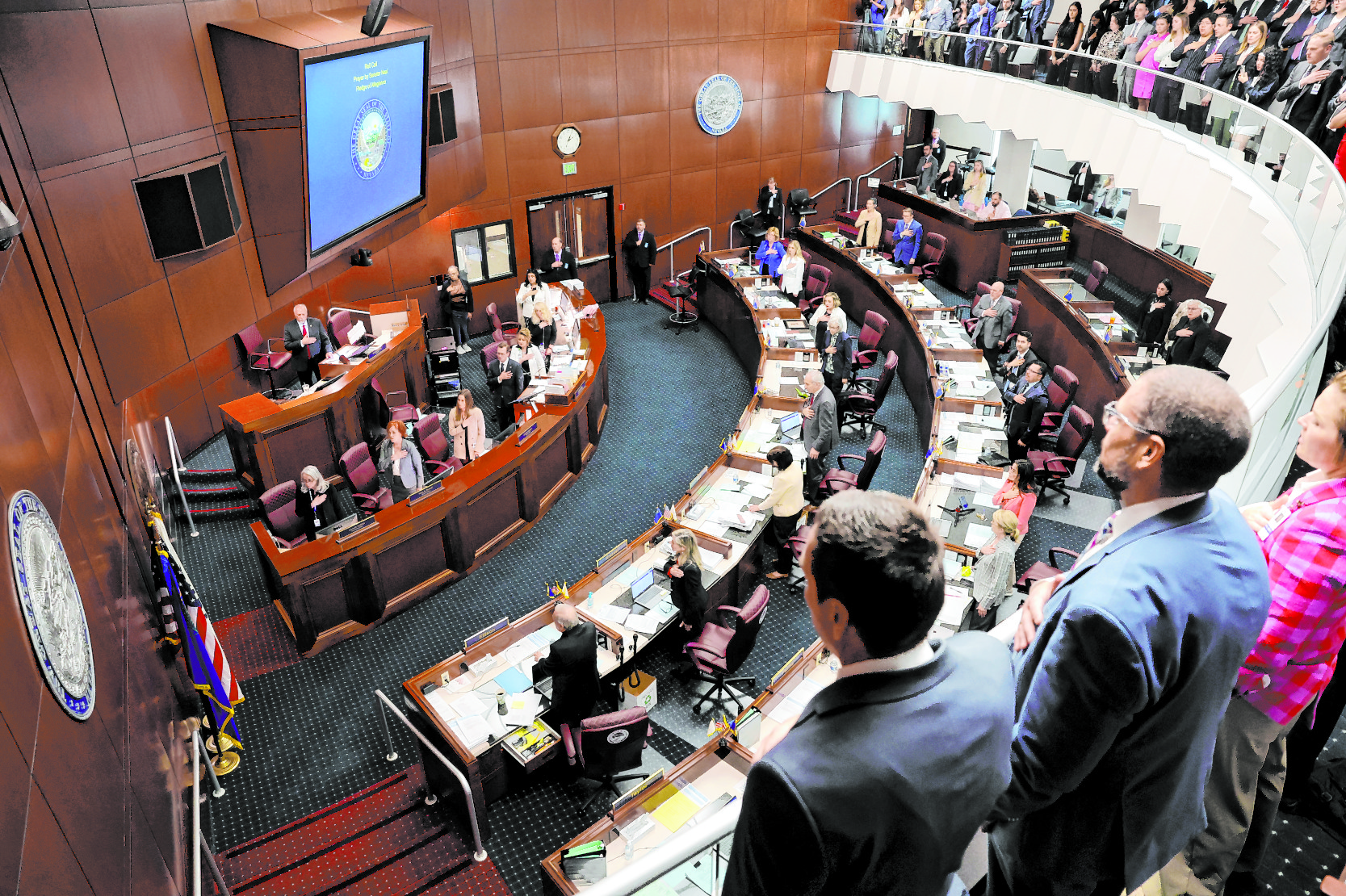
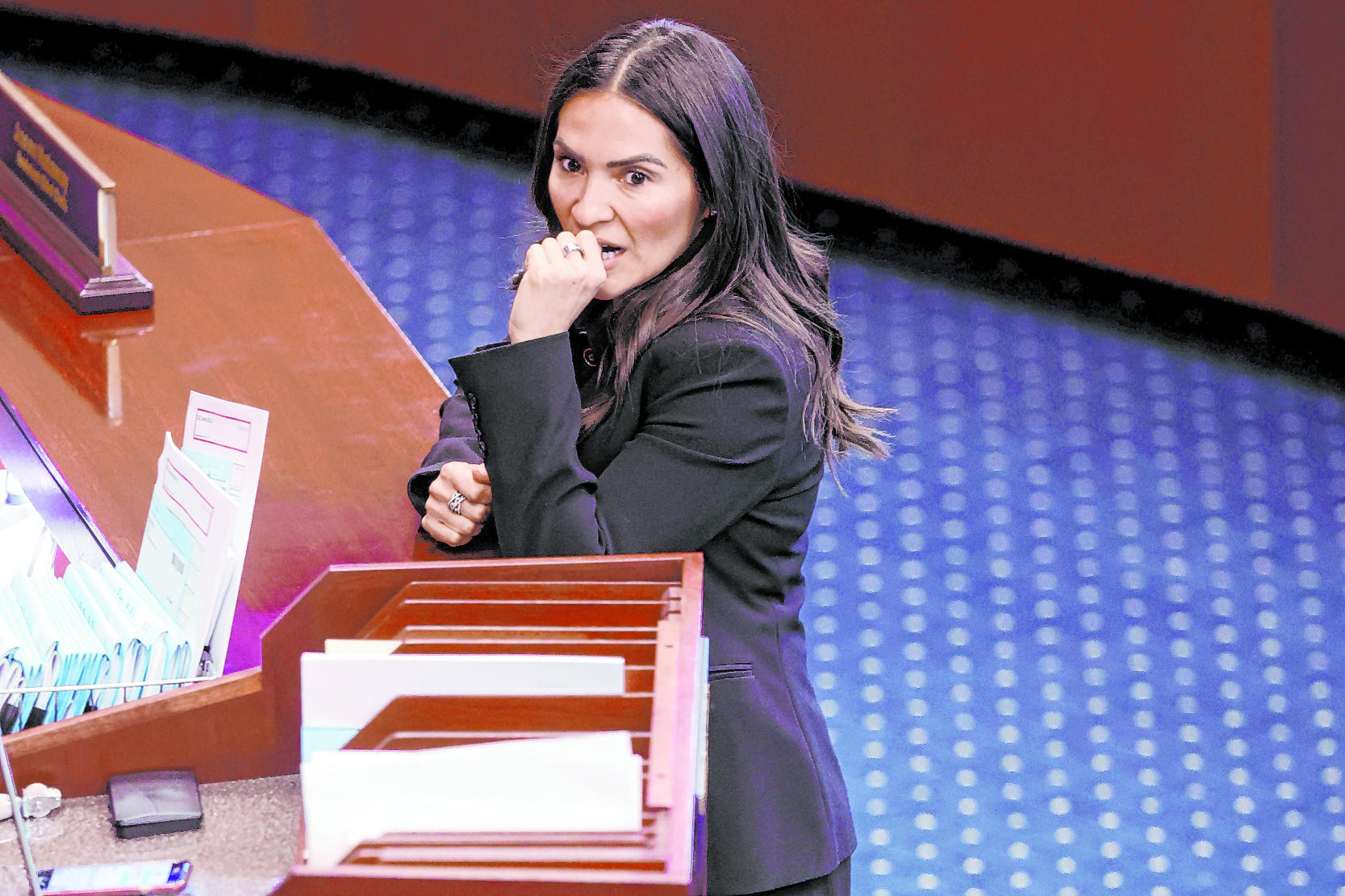
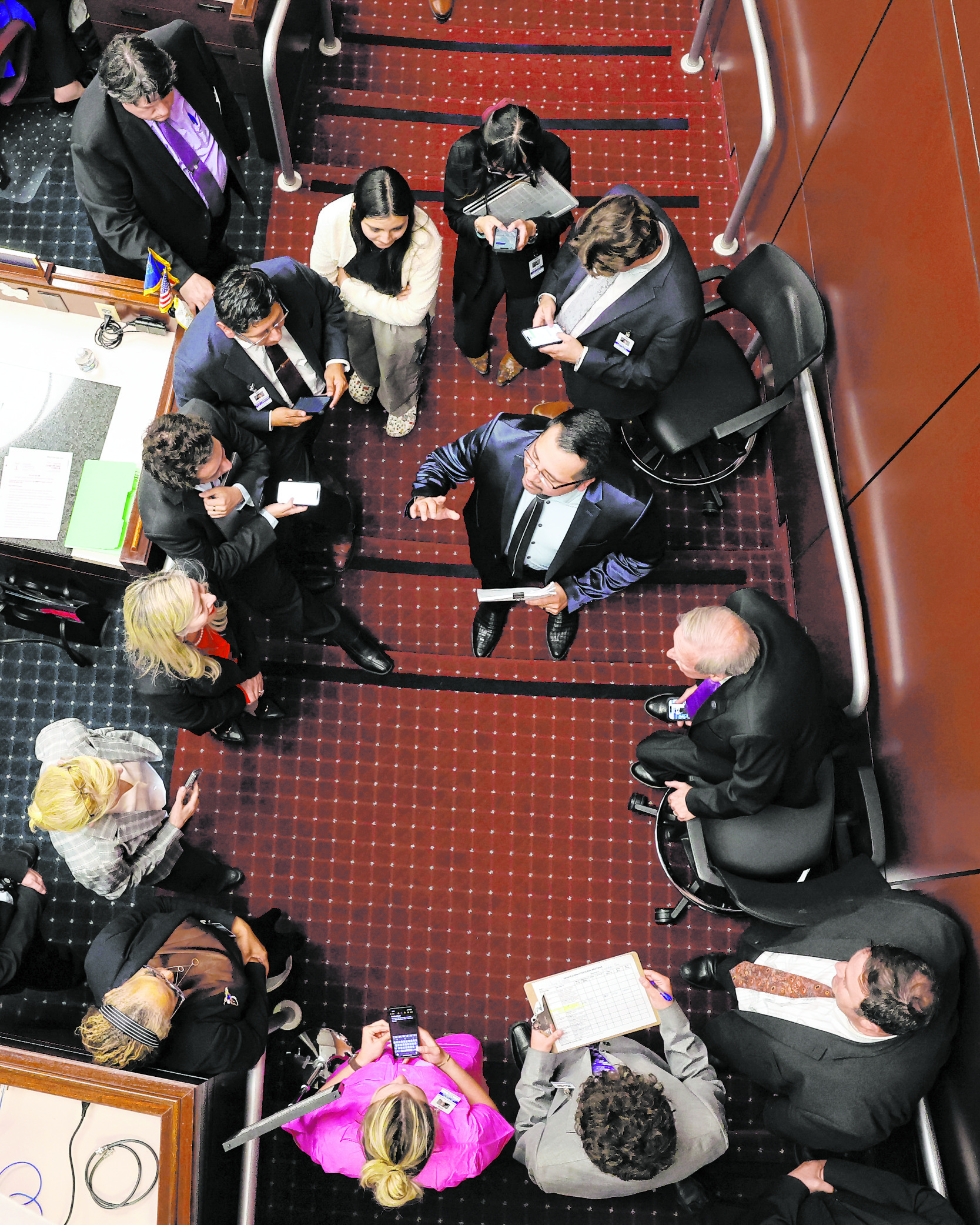

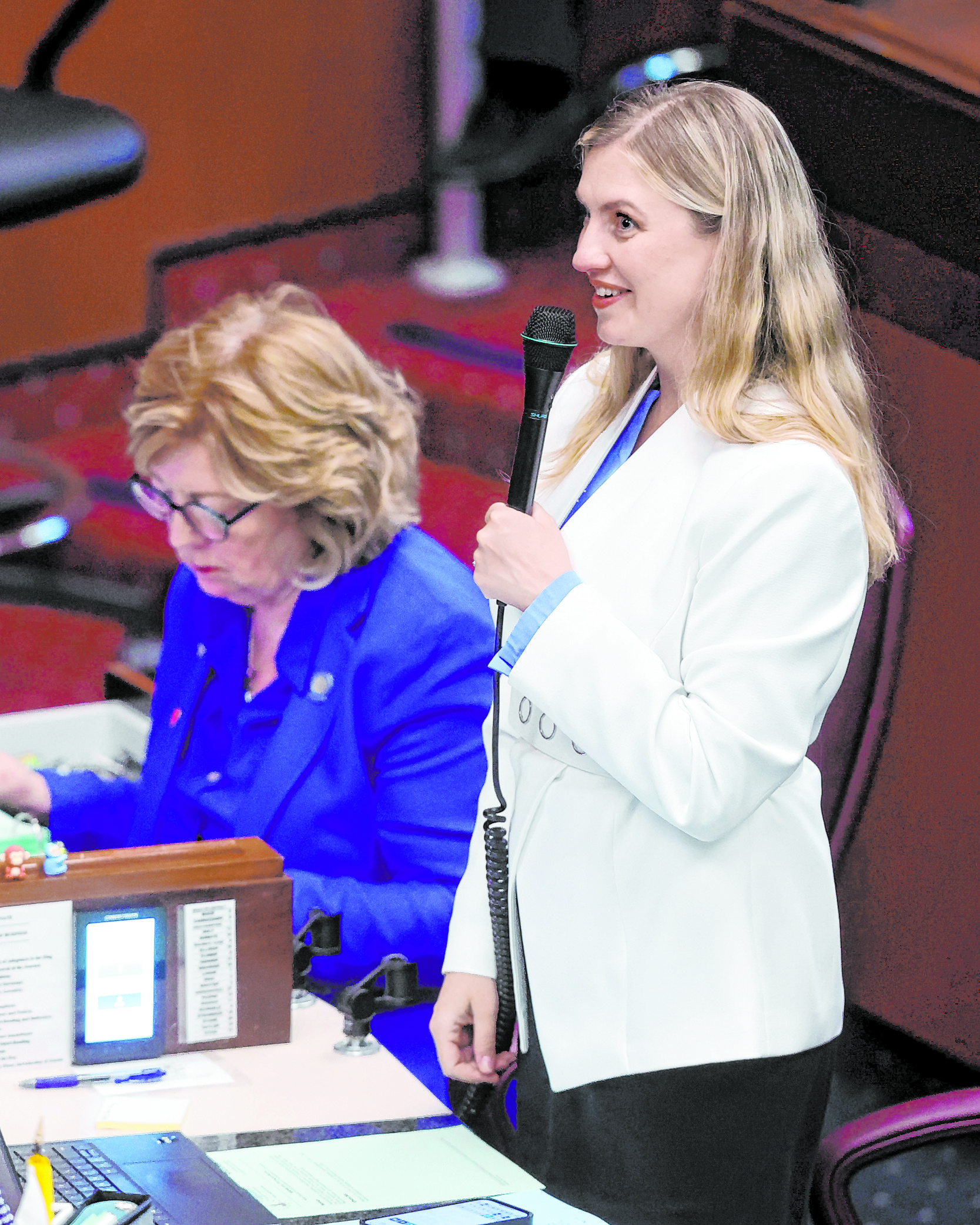
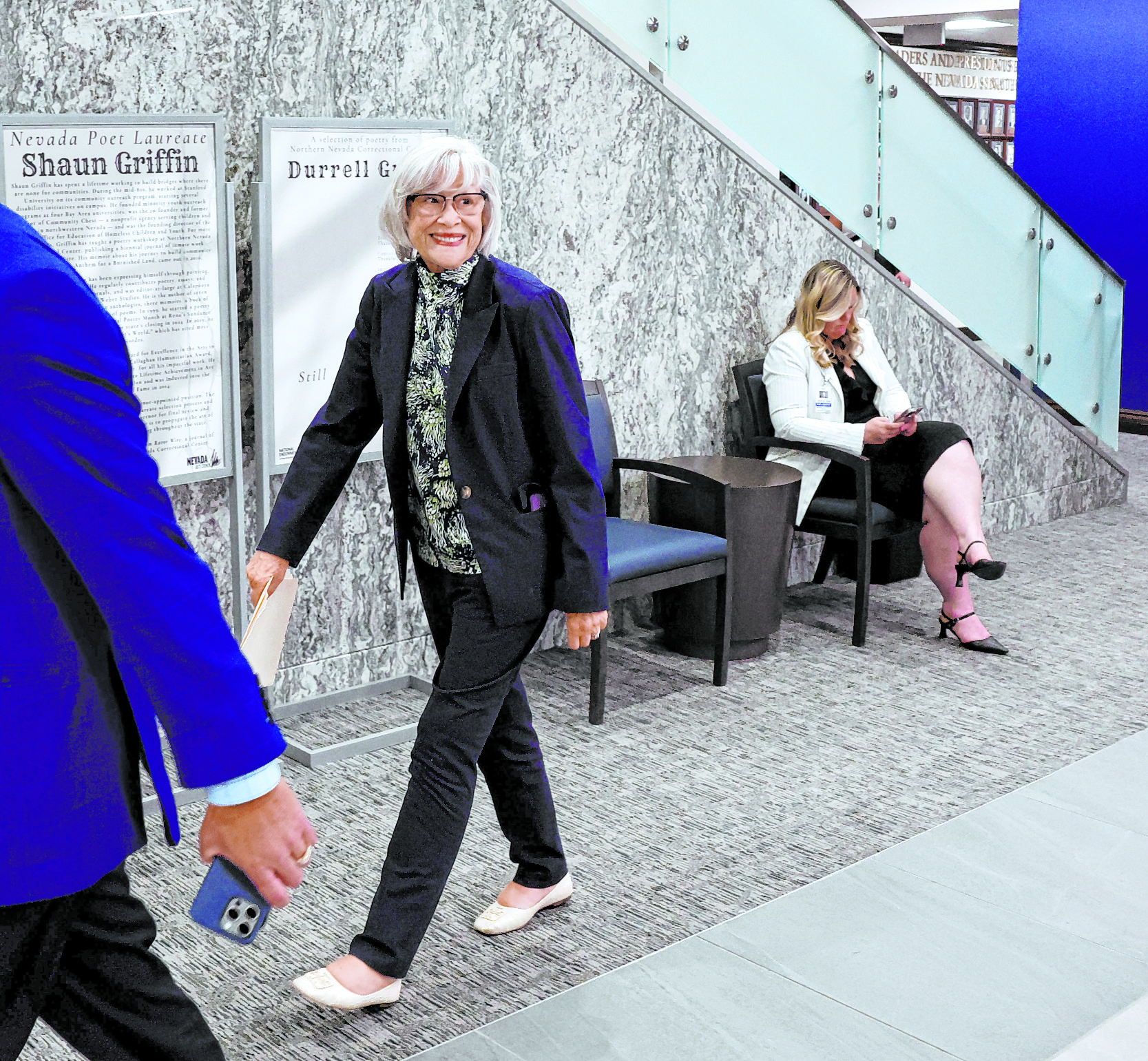
CARSON CITY — Lawmakers powered through the final night of the 2025 session as major policy proposals cropped up within hours of the midnight deadline.
While legislators made major progress — and negotiations — during the day, many of the final votes did not occur before the Las Vegas Review-Journal’s print deadline.
For instance, the capital improvement project budget, the last constitutionally required budget bill legislators must approve, had not passed as of 10 p.m. The critical legislation is often used as leverage, and in 2023 was the cause of one of the special sessions after lawmakers failed to pass it before sine die, or the end of the regular 120-day session.
In the waning hours of the part-time Legislature, major developments were made, from critical changes to the governor’s crime bill to modifications to the bipartisan education bill.
Hollywood in Vegas?
A bid to lure Hollywood studios to Southern Nevada hit some screen-worthy drama following a late-night amendment proposed by a rival bill sponsor that called for a study on the viability of a film industry in the state.
Senators had moved Assembly Bill 238, proposing to overhaul the state’s film tax credit program and offer those incentives to build a 31-acre campus called Summerlin Studios, through the procedural second reading that is required of bills in the Nevada Legislature. The motion eliminated the need for a committee hearing in the second chamber and made the bill available for a full vote of the 21-member body on Monday.
That vote had not occurred as of 10 p.m. when Sen. Roberta Lange, D-Las Vegas, proposed the amendment to study the industry in the interim. No vote has been taken on her amendment.
The heavily lobbied effort is backed by Sony Pictures Entertainment, Warner Bros. Discovery and developer Howard Hughes Corp. It would expand the state’s film tax credit program from the existing $10 million cap to $95 million in annual film tax credits for 15 years, becoming available in 2028 and only after the studios begin development on the site.
AB 238 passed its house of origin with a narrow margin of 22-20 on Friday night.
Lombardo’s crime bill overhauled
New penalties for so-called “smash-and-grab” crimes were among several of the major amendments made to Gov. Joe Lombardo’s signature public safety bill detailed on Monday.
The reworked Senate Bill 457 was rushed through the chamber early Monday afternoon, only half a day after the conceptual amendments were introduced and passed out of committee. Senators declared the bill an emergency measure, allowing it to move through the legislative process without following the typical timeline so it could be considered before the final gavel drops.
Sen. Melanie Scheible, chair of the Senate Judiciary Committee, told lawmakers in the Assembly Judiciary Committee later that afternoon that she had been working with the Republican governor’s office on the changes that focus the bill on DUI penalties, smash-and-grabs and school safety.
“It was an effort to find a middle ground between addressing retail theft and not reducing our felony theft thresholds,” Scheible, D-Las Vegas, told assemblymembers.
The Assembly panel also questioned additions proposed by the Nevada Resort Association, which would allow for the return of a justice court dedicated to crimes on the Strip. Lobbyists said the intent was to address repeat trespassing offenders.
The amended bill removed provisions to lower the felony theft threshold from $1,200 to $750, a key proposal from Lombardo. It also removed sections lowering the number of crimes that would define someone as a habitual offender and increased penalties for fentanyl trafficking.
The bill had not passed out of the Assembly committee as of 10 p.m.
Merged education bills advances
The Assembly Education Committee pushed through Senate Majority Leader Nicole Cannizzaro and Lombardo’s merged education bills Monday afternoon, though the Assembly needed to give its stamp of approval by midnight.
A heavily amended bill, SB 460 was the result of compromise from Democrats and Republicans in an effort to make meaningful reform to the Silver State’s education system, which has consistently ranked near the bottom in the U.S.
The Assembly Education Committee approved an amendment that would reduce the cost of the bill, from $135.5 million from the general fund to $42.6 million.
Democratic Assemblymembers Selena La Rue Hatch and Reuben D’Silva — both educators — were the lone no votes in the committee, citing concerns including the proposed state takeover of underperforming schools.
“I think if we had more time, we probably could have worked to get a much, much better bill,” La Rue Hatch said. “We don’t have that time, so unfortunately even though I appreciate the work that the chair and others have done, I am going to be a no on this bill.”
Cannizzaro originally proposed legislation that would expand pre-kindergarten programs, hold charter schools accountable and establish a teacher-to-administrator ratio. In Lombardo’s original legislation, he pushed for transportation for charter schools and expanded open enrollment.
But with Democrats as the majority in the Legislature and the Republican governor with veto power, compromise was necessary to successfully pass legislation. On Sunday, an amendment to Cannizzaro’s bill was released, with parts of the governor’s Assembly Bill 584 absorbed into it. The Senate passed the bill unanimously Sunday.
Senate Bill 460 focuses on increasing transparency and accountability of school districts, improving recruitment and retention of teachers, providing funding for literacy intervention programs and expanding pre-K options and open enrollment.
The legislation creates a statewide accountability system for school districts and charter schools, and gives rankings to both the district and individual schools. The state would intervene in districts and schools that consistently underperform and provide them with support. It also allows the state to impose corrective actions, such as replacing school or district leadership and assuming state control over management.
It also aims to lower vacancy rates in school districts; Clark County, for instance, has consistently struggled to fill positions, with over 1,000 vacancies reported in the 2024-2025 school year.
SB 460 also creates the Commission on Recruitment and Retention, which will recommend strategies to address Nevada’s teacher shortage and high turnover rate. The legislation also creates a system of open enrollment, which includes transportation for students in low performing schools to a school outside of their zone of attendance. The bill appropriates $7 million in the second biennium to provide that transportation.
Contact Jessica Hill at jehill@reviewjournal.com and McKenna Ross at

